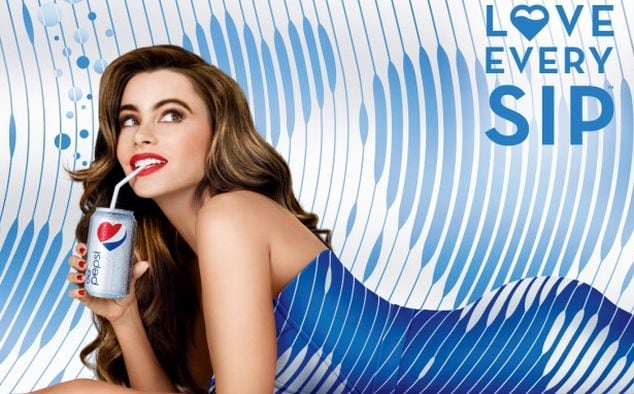Whether the reformulation will be a success, of course, depends to some extent on whether consumers are spurning diet soda because they are worried about aspartame, or because they are just bored of big brands such as Diet Pepsi and Diet Coke and have so many other options to choose from now.
Lori Colman, founder of branding and marketing agency CBD Marketing, told FoodNavigator-USA that she understood the rationale behind the move:
“If I had a product line that contributed $3 billion in revenue 10 years ago and $2 billion now and continuing to trend downward, I’d likely try something new, too.”
‘Any product with ‘diet’ as the lead is increasingly out of step with modern consumers wanting the ‘real’ thing’
But replacing one artificial sweetener with another (Pepsi is replacing aspartame with sucralose and keeping ace K) is a risky move, she said: “The ‘no aspartame’ on the label will no doubt beg the question and spur consumers to seek out the replacement sweetener.
“Then, they’ll find some other chemical-sounding name [sucralose]. It’s not like aspartame was replaced with a non-artificial sweetener. So, does making aspartame the bad guy solve their problem? Probably not."
She added: “Might it be that consumers are done with diet sodas? After all, sales are falling across all brands – not just Pepsi. Is it aspartame, or all artificial sweeteners a concern in the mind of the consumer? Most reports linking diet soft drinks to belly fat, cravings and weight gain tend to call out the whole category.”
Big brands like Diet Coke and Diet Pepsi resonate with boomers, not Millennials
Alex Woo, Ph.D. chief executive at consultancy W2O Food Innovation and an expert on high potency sweeteners, told FoodNavigator-USA that he also doubted whether replacing one artificial sweetener with another was the answer to Diet Pepsi’s problems, although he stressed that aspartame was safe.
He added: “Some people say it’s obvious that aspartame or artificial sweeteners are the problem but I don’t think it’s that obvious. Diet soda is like chewing gum [sales of which have been declining for some time], big brands like Diet Coke and Diet Pepsi resonate with boomers, not Millennials.
“The world is changing and younger consumers are increasingly looking to bottled water, enhanced water, tea, energy drinks, and more recently,'plant waters'. And most of these beverages were created with plant-based ingredients that are found in nature."
Paddy Spence, CEO at Zevia, the fast-growing zero-calorie range of carbonated soft drinks sweetened with stevia and monk fruit, told FoodNavigator-USA that he also doubted PepsiCo's move would significantly change public perceptions.
"The extensive consumer research we have done at Zevia indicates that diet soda drinkers also have negative perceptions of many other ingredients in these products, whether it’s artificial preservatives, artificial colors, GMOs, or phosphoric acid. Based on that, I’m not sure this change is sufficient to bring shoppers back to Diet Pepsi."

This smacks of desperation
Dr Rachel Cheatham, founder and CEO of consultancy Foodscape Group LLC, said: “Given the technical report of the Dietary Guidelines specifically called out aspartame as a potential issue though still cited EFSA as proof of safety, it is not surprising PepsiCo made this move."
As for consumer perceptions of aspartame, she said: “I think the turn against aspartame has been brewing for years. I would say it directly correlates with the volume/rise of social media actually. But I don't think the distance between aspartame and sucralose is far enough apart to bring weary consumers in to the fray of accepting some artificiality. Days are numbered there too.”
She added: “All said, this is one step up the ladder of desperation to remain relevant to consumers looking for lower calorie beverages that still deliver on taste and health. I predict diet soda sales will continue to falter as consumers look to a whole host of other options from lower real sugar sodas to fresh pressed juices to kombucha or tea.
“Plus, any product with ‘diet’ as the lead is increasingly out of step with modern consumers wanting the ‘real’ thing."
Euromonitor: Perceptions about aspartame have really hardened over the last few years
Howard Telford, Senior Industry Analyst, Beverages, at Euromonitor International, told us he was a little surprised by the move, which he claimed “reflects the reality that changing consumer perception is an uphill fight”.
And despite the FDA’s recent positive comments about aspartame’s safety, he said, “perceptions about aspartame have really hardened over the last few years, at least in the US, to an extent that we haven’t seen with other artificial sweeteners.”
The writing has been on the wall for some time
Asked if she was surprised by the reformulation, Kantha Shelke, Ph.D. Food scientist & principal at consultancy Corvus Blue LLC, told us: “Not really. The proverbial writing has been on the wall for quite some time.
“The recent publication of the 50% greater risk of heart-related disease for women drinking two diet sodas per day (based on ~ 60,000 post-menopausal women who were studies for ~ 10 years and presented at the 63rd Annual Scientific meeting of the American College of Cardiology in Washington, DC) may be an indication of the future of not only aspartame but also of the other artificial sweeteners.
“Artificial sweeteners may have to take a back seat and become accustomed to being a sometimes-food …as Cookie Monster would caution children."

FDA: Aspartame is safe
However, the FDA says it has been monitoring the scientific data on aspartame since the 1970s and has not seen anything to change its position that it is “safe for the general population except for individuals with phenylketonuria [warning labels about which are mandatory on all products containing aspartame]”.
In a letter published on October 24, 2014, responding to a citizen’s petition calling for a ban on aspartame, the FDA said: “Despite your many assertions, you have not identified any scientific data or other information that would cause the agency to alter its conclusions about the safety of aspartame.”
Read more here:
- PepsiCo ditches aspartame from Diet Pepsi in US: ‘While decades of studies show aspartame is safe, we recognize that consumer demand is evolving’
- Pepsi exec: Aspartame is the #1 reason why US consumers say they are drinking less diet cola
- FDA rejects calls for aspartame ban: ‘No new credible scientific evidence has been presented’
